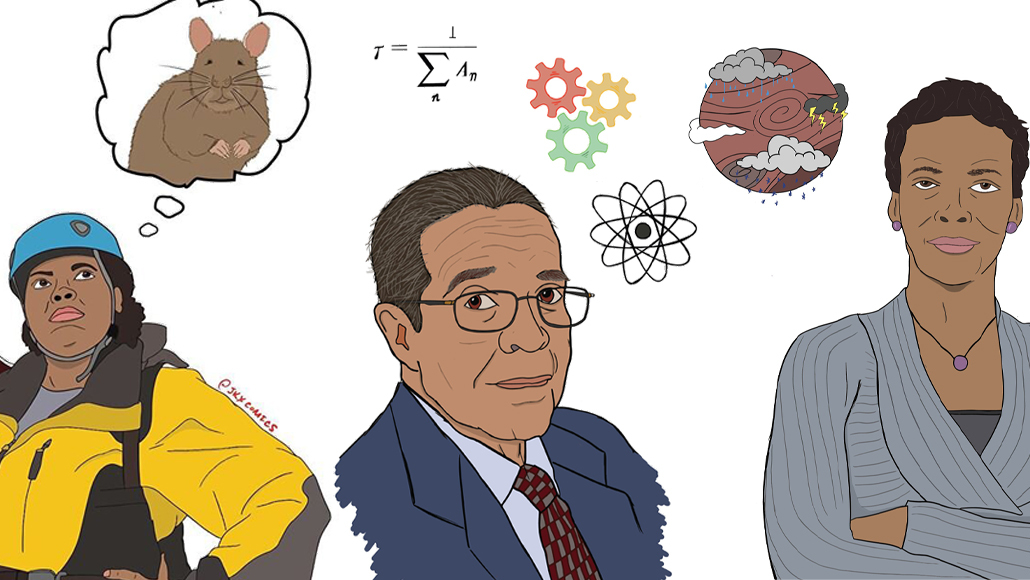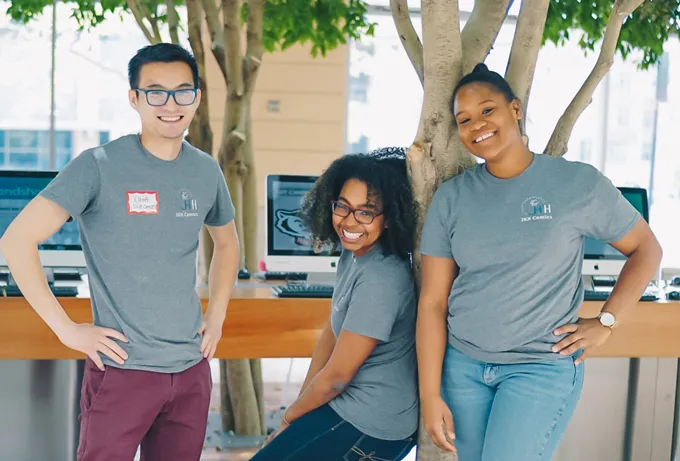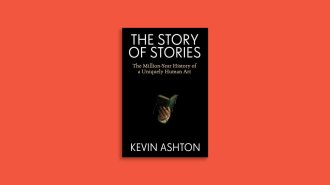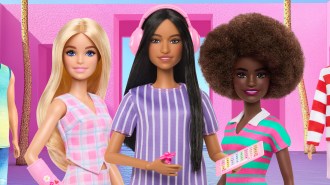Real-life scientists inspire these comic book superheroes
Three grad students teamed up to use storytelling and cartoons to teach tough science topics

JKX Comics, an online publishing organization, turns complex science jargon into bite-sized comics for students to understand. These images of ecologist Danielle Lee (left), mathematician and physicist J. Ernest Wilkins Jr. (middle) and astrophysicist Aomawa Shields (right) were made to celebrate Black History Month.
Khoa Tran
By Kyle Plantz
- More than 2 years ago
Read another version of this article at Science News Explores
Jaye Gardiner loves comic books, and she loves science. So sensing an opportunity, she decided to combine the two.
In 2015, Gardiner and two other friends, Khoa Tran and Kelly Montgomery, founded an online publishing company called JKX Comics. At the time, the three were pursuing Ph.D.s in different fields at the University of Wisconsin–Madison. And they knew how tough it can be to explain research or engage students in the nuances of science.
So they decided to use the easy-to-digest cartoon format and light humor to boost scientific literacy. The trio spent weekends at a campus bar writing the script and drawing panels for their first comic book, published in 2016. The comic, EBV and the Replication Dance, describes how the common Epstein-Barr virus replicates by telling a story about the virus going clubbing with friends inside a human cell.
“You have the visual components” to help convey complex systems, “and then you also have that story element,” says Tran, now an epigeneticist at the University of Pennsylvania. “Having comics as a way of opening that door into what science is could hopefully inspire the next generation to pursue STEM [science, technology, engineering and math].”

The three were not alone in seeing a place for science in the comic universe. Many studies have suggested that comics can engage a wide and diverse audience with science subjects, according to a 2018 meta-analysis in the Journal of Science Communication. And comics can make information more accessible by presenting it through both text and illustrations.
In 2018, seven more scientists at UW–Madison joined the JKX Comics crew, bringing fields such as psychology, astronomy and microbiology to the table. Local artists were drafted to help illustrate the scientists’ research.
For the volunteer crew, the comics — 10 are now offered online for free — have also given scientists a friendlier face. “We can show who the scientists are … that they are also just people,” says Gardiner, a cancer biologist at the Fox Chase Cancer Center in Philadelphia. “We’re not all geniuses with Einstein-like hair that are antisocial and just have Eureka moments all the time. And using comics is a nice way to tell their story.”
Their latest, Gilbert’s Switch Glitch, released in two parts on February 29 and March 2, sees a biochemist get sucked into a video game where he has to test amino acid combinations to get proteins to communicate effectively. The panels are drawn in the style of the classic video game Super Mario Bros., and the storyline explains fundamental concepts in biochemistry, says its author, Montgomery, now a chemical biologist at the University of California, San Francisco.
Sign up for our newsletter
We summarize the week's scientific breakthroughs every Thursday.
By understanding how proteins communicate, “you can modify a protein to be able to communicate to its neighbor better,” she explains. “This can help us with [stopping] diseases related to proteins communicating in the wrong way,” such as Alzheimer’s and Charcot-Marie-Tooth disease, which causes nerve damage in the arms and legs.
It’s not always easy to translate a complex science topic into a comic. The creators have to balance accuracy and an engaging story. “It’s something that we grapple with, and it’s never going to be perfect,” Tran says. “But we really want to instill that curiosity in people to then learn more and further investigate the topic.”
Though the comics are geared toward middle school students, the team hopes people of all ages can enjoy them and learn something. The three are now creating a Kickstarter campaign to raise funding to print their comics for the Madison Reading Project’s distribution to underserved children in the region. They’re also working on a new comic series about women in STEM fields, and another on investigating diseased organs, an homage to CSI, the television show on criminal forensics.
“There’s a lot of misinformation in our communities,” Montgomery says. “And it scares people away from science. If we could limit some of those misunderstandings when they’re kids or when their parents are reading with them, I think that would be a really positive impact.”







